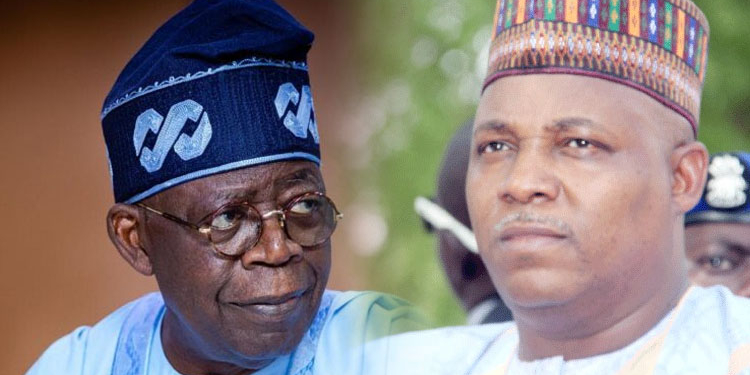The Vice President-elect, Kashim Shettima, has addressed concerns that he and his principal, Bola Tinubu, have an agenda to islamise Nigeria.
Since the incoming vice president was announced as Tinubu’s running mate last year ahead of the elections, there have been divergent views by different groups and individuals with some alleging that the Muslim-Muslim ticket of the ruling All Progressives Congress (APC) could be a ploy to Islamise Nigeria.
But, speaking on Saturday at a lecture in Abuja forming part of the events around Tinubu’s inauguration on May 29, the incoming Vice President allayed such fears, saying there was no agenda to Islamise Africa’s most populous nation.
He described himself as a child necessity and his principal as a Muslim who is married to a Christian and Pastor at the Redeemed Christian Church of God (RCCG).
“Politics is about perception. As we begin the formation of a new administration, I deliberately picked an Igbo man, a Catholic, to be my Chief Security Officer.
“For the purpose of inclusivity and togetherness, again I deliberately picked a Northern Christian to be my ADC. So the so-called founder of Boko Haram is going to be protected by…”
Also speaking at the lecture, the President of the African Development Bank, Dr Akinwumi Adesina, has decried the fuel subsidy regime by the Federal Government, saying it only benefits the rich.
Lamenting that the continued payment to subsidise petroleum products was killing the Nigerian economy, Adesina said fuel subsidy gulped $10 billion in 2022 alone.
According to him, Nigeria kept borrowing for what shouldn’t be borrowed for, advising that such money should be channelled to national development.
“The place to start therefore is to remove the inefficient fuel subsidy. Nigeria’s fuel subsidies benefit the rich, not the poor, fuelling theirs and the government’s endless fleet of cars at the expense of the poor.
“Estimates show that the poorest 40 per cent of the population consume just three per cent of petrol.
“Fuel subsidies are killing the Nigerian economy, costing the economy of Nigeria $10 billion in 2022. That means that Nigeria is borrowing what it doesn’t have to borrow,” Adesina stated.










Discussion about this post